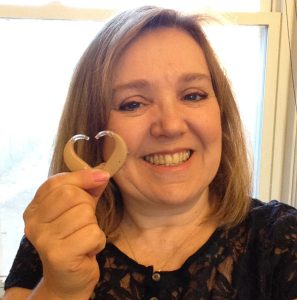
Holiday party hosts need to ensure everyone can take part in the celebrations, says Pam Millett, an audiologist and an associate professor in the Faculty of Education with more than 30 years of experience working with children and adults with hearing loss.
Senior citizens, for example, may experience hearing loss due to the natural aging process and have difficulty communicating in situations like a large family dinner. Millett says research has linked untreated or unmanaged hearing loss in seniors to social isolation, depression, poorer family relationships, and even early onset of cognitive decline. For children with diagnosed hearing loss who use hearing aids or cochlear implants, they may struggle with participating in noisy, fast-paced holiday activities.
A leading educational audiologist, Millett’s research focuses on maximizing the use of technology in the classroom to ensure students with hearing loss, from JK to post-secondary, can hear clearly and participate fully. She writes a quarterly column in Canadian Audiologist on what educational audiology is and how audiologists support students with hearing loss.
Millett offers the following tips to host an inclusive holiday party with guests who are deaf and hard of hearing, including:
Lower the volume on background music to make hearing easier
- Make sure there’s adequate lighting, even if hosting a candlelit meal
- Encourage guests to speak one at a time, instead of talking over each other
- Speak a little more slowly and look toward the person with the hearing loss during group conversations
- Set up the TV for subtitles to appear on the screen before watching a holiday movie
Click here to view original press release published by York Media Relations
